The Well-Tempered Ear
FREE birthday bash for Johann Sebastian Bach is this Saturday in Madison
4 Comments
PLEASE HELP THE EAR. IF YOU LIKE A CERTAIN BLOG POST, SPREAD THE WORD. FORWARD A LINK TO IT OR, SHARE IT or TAG IT (not just “Like” it) ON FACEBOOK. Performers can use the extra exposure to draw potential audience members to an event. And you might even attract new readers and subscribers to the blog.
By Jacob Stockinger
The Ear thinks of this week’s Bach Around the Clock — which runs March 6-10 — as a double celebration.
The primary one is to mark the 339th birthday of composer Johann Sebastian Bach (below, March 20, 1685-July 28, 1750), whom many consider to be the Big Bang of Western classical music.
The second celebration is to honor the late Madison violist Marika Fischer Hoyt (below), who with help resurrected Bach Around the Clock in Madison after it had been dropped by Wisconsin Public Radio.
Talented, hard-working and congenial, Fischer — who died a year ago of cancer — was a fixture of the local music scene. She was a member of the Wisconsin Chamber Orchestra and spent 20 years playing in the Madison Symphony Orchestra. An outstanding chamber musician, she also helped found and played in the Ancora String Quartet.
An avid proponent of early music using period instruments and historically informed performance practices, Fischer Hoyt helped found and play in the weekly free Just Bach concerts. She performed regularly with the Madison Bach Musicians and with an early music string group she helped found, Sonata à Quattro.
Here is a link to a complete schedule on the BATC website:
The Ear thinks Marika would be very pleased and proud of this year’s event.
It will feature Bach’s original choral and instrumental music in many genres and transcriptions. Soloists and groups of varying sizes will take part. And Bach’s music — so central to the repertoire and all levels of musicianship — will be performed by students (below are members of the Suzuki Strings), by amateurs and by professionals (in the YouTube video at the bottom) — making BATC a truly community-wide celebration of Bach.
The hours for the Birthday Bash concert, which used to run 12 hours, have been cut back to a reasonable and accessible 10 a.m.-5 p.m. at St. Andrew’s Episcopal Church, 1833 Regent St., on Madison’s near west side. But a birthday cake will still be cut at the end.
And in case you want to duck in and out or catch certain performances or performers, here is a full program schedule for Saturday:
https://drive.google.com/file/d/1CIRby29h6wZjyngZgyMPpTrLNiMC_1OR/view
You can find links to all other events and programs — printed in blue — on the main website for the March 6-10 festival.
Performances by performers in their own homes and studios will air online as part of the Virtual Festival held of BATC’s YouTube channel, starting at midnight on this Sunday, March 10. Its runs without a time limit and can be accessed worldwide.
Here is a link to the YouTube channel, which also has past performances
https://www.youtube.com/channel/UCHBRPHSGd_fNECp-qrWsqlQ
Have you attended or heard other Bach Around the Clocks?
What do you think of the celebration?
The Ear wants to hear.
Tags: #BlogPost, #BlogPosting, #FacebookPost, #FacebookPosting, #GoogleAlert, #Hard Work, #YouTubevideo, 2021, 2022, 2023, 2024, accessible, Ancora String Quartet, Android, Arts, attend, Bach Around the Clock, Baroque, BATC, birthday, blog, Brain, cake, cancer, Cantata, celebration, Cello, central, Chamber music, choral music, chorus, church, Classical music, clavichord, community, complete, composer, Concert, concerto, congenial, cut, dead, death, die, died, Early music, Episcopal, event, Facebook, festival, free, fugue, genre, Google, Google Alert, group, harpsichord, hear, historically informed performance practices, Home, honor, instrument, instrumental, Jacob Stockinger, Johann Sebastian Bach, Keyboard, link, Madison, Madison Bach Musicians, Madison Symphony Orchestra, Marika Fischer Hoyt, memory, Music, Musician, musicianship, online, Orchestra, organ, original, OS, Overture, Overture Center, partita, Passion, performance, performer, period instruments, Pianist, Piano, Prelude, program, Protestant, reasonable, repertoire, repertory, share, singer, Singing, soloist, Sonata, Sonata à Quattro, Spple, St. Andrew's Episcopal Church, String quartet, strings, studio, Suite, Suzuki, Suzuki Strings, symphony, tag, talent, The Ear, transcription, tumor, United States, University of Wisconsin-Madison School of Music, University of Wisconsin–Madison, Viola, Violin, violist, virtual, vocal music, volinist, Website, Wisconsin Chamber Orchestra, wisconsin public radio, worldwide, you, YouTube, ytalented
Classical music: We should hear more operas sung in English translation – like Wisconsin Public Radio’s live broadcast TODAY at noon of the Metropolitan Opera’s shortened version of Mozart’s “The Magic Flute”
6 Comments
IF YOU LIKE A CERTAIN BLOG POST, PLEASE SPREAD THE WORD. FORWARD A LINK TO IT OR, SHARE or TAG IT (not just “Like” it) ON FACEBOOK. Performers can use the extra exposure to draw potential audience members to an event.
By Jacob Stockinger
The Ear thinks that we in English-speaking countries should hear more operas sung in our native language.
Yes, sung in English – not the original Italian, French or German.
You can see how you’d like it for yourself if you listen at noon TODAY– Saturday, Dec. 29 — to Wisconsin Public Radio. That’s when you can hear the Metropolitan Opera’s live broadcast of its family-friendly production of Mozart’s “The Magic Flute.”
The Ear did so and – except for deleting the wonderful overture — loved it.
So, apparently, did a lot others. (You can hear Nathan Gunn in a sample in the YouTube video at the bottom.)
After many years, the production has now become a holiday tradition for the Met to offer children while school is out for the holidays.
And one suspects it is developing new audiences – especially with the colorful staging and costumes by Julie Taymor, who won such acclaim for her staging of “The Lion King” on both the stage and film.
Sure, a lot of purists will probably object to substituting English for the original Italian, French, German and Russian. But it is so freeing and feels so good to understand what you are hearing without the distraction of constantly going back and forth trying to look at both the supertitles and the stage.
It also seems worth a try, given the problems that many opera companies are having competing with the “Live from the Met in HD” productions that you can see in movie theaters for far less money, and the decline of both season subscribers and single tickets.
To be honest, of course even in English you will miss some of the words. That’s the nature of singing. But excellent diction helps. And if you are lucky enough to see the production in person, supertitles in Italian, French German and Spanish and, yes, English are still provided.
It is not a completely new idea. After all, Great Britain has the English National Opera, which performs standard operas by Verdi and Puccini, Monteverdi and Handel, Mozart and Wagner, in English. So, many of the very great operas have already been translated into English and could be staged in English elsewhere.
Here are links where you can learn more about the English National Opera:
https://en.wikipedia.org/wiki/English_National_Opera
Do you question how the text is hurt in translation?
It’s worth remembering that Mozart himself used the vernacular German instead of his usual opera house Italian so that he would reach the general public. Why not do the same today? Translation could make opera much more accessible, less pretentious and more populist.
The same is true for cutting the show down to 100 minutes from almost 3 hours. Let’s just admit that the attention span of the general public is much shorter than it used to be.
Orchestra and chamber music concerts as well as solo recitals are trimming their running times often down to 90 minutes or less, and meet with great approval from the public. Why not try the same approach with opera? Indeed, both the Madison Opera and the University Opera have limited but successful experiences with editing operas and using English.
It is also worth recalling that in translation we read greater words than an opera libretto. If we can translate Homer and Shakespeare, Dostoevsky and Proust, why can’t we translate opera librettos? One just has to be sure to find a great translator with a sensitive musical ear– such as American poet Richard Wilbur is with his award-winning, rhyming translations of Moliere’s comedies and Racine’s tragedies. Similarly, American poet J.D. McClatchy has done a fine job with The Met’s “Magic Flute.”
Here is a link to more information about the production, including a synopsis:
https://www.metopera.org/season/2018-19-season/the-magic-flute/
And here is a review of the Met’s “Magic Flute” by Tommasini:
https://www.nytimes.com/2018/12/20/arts/music/review-mozart-magic-flute-met-opera.html
What do you think?
Should more operas be staged in English?
Should long operas be edited?
Why or why not?
The Ear wants to hear.
Tags: #AmericanPoet, #AttentionSpan, #BlogPost, #BlogPosting, #Children'sOpera, #ClaudioMonteverdi, #EnglishLanguage, #EnglishNationalOpera, #FacebookPost, #FacebookPosting, #FrenchLanguage, #FyodorDostoevsky, #GeneralPublic, #GeorgeFridericHandel, #GermanLanguage, #GreatBritain, #HolidayTradition, #ItalianLanguage, #JulieTaymor, #LiveFrom the MetinHD, #MadisonOpera, #MarcelProust, #MetropolitanOpera, #MetropolitanOperaLiveinHD, #MusicalEar, #MusicReview, #NathanGunn, #NewYorkCity, #OperaMusic, #OperaReview, #RichardWilbur, #RussianLanguage, #SatelliteBroadcast, #SingleTickets, #SpanishLanguage, #TheEar, #TheLIonKing, #TheMagicFlute, #TheMet, #TheNewYorkTImes, #UnitedKingdom, #UnitedStates, #UniversityOpera, #VocalMusic, #WilliamShakespeare, #WisconsinPublicRadio, #WolfgangAmadeusMozart, #YouTubevideo, abridge, abridged, accessible, American, Arts, attention span, award, award-winning, Baroque, Beethoven, blog, Broadcast, Chamber music, children, cinema, Classical music, colorful, comedies, comedy, composer, costumes, cut, diction, distraction, Dostoevsky, Early music, edit, England, English language, English National Opera, Facebook, family-friendly, feel, film, film'theater', forward, French, George Frideric Handel, German, Great Britain, Handel, hear, holiday tradition, Homer, Italian, Jacob Stockinger, Julie Taymor, language, like, link, live, Live From The Met in HD, look, Love, Ludwig van Beethoven, Madison, Madison Opera, Marcel Proust, Metropolitan Opera, Moliere, money, Monteverdi, movie, Music, music review, musical ear, Nathan Gunn, New York City, New York Times, NPR, opera, Opera review, Orchestra, Overture, poet, Poetry, popular, populist, post, posting, pretentious, problem, production, Proust, public, Racine, Radio, read, recital, rhyme, Richard Wilbur, Russian, Saturday, school, Shakespeare, share, shorten, sing, singer, Singing, single tickets, Spanish, stage, staging, students, subscribers, sung, supertitles, tag, The Ear, The Lion King, the Met, theatre, today, tragedies, tragedy, translation, trouble, UK, understand, United States, University of Wisconsin-Madison School of Music, University of Wisconsin–Madison, University Opera, vernacular, version, vocal music, Wisconsin, wisconsin public radio, Wolfgang Amadeus Mozart, YouTube
Classical music: The Wisconsin Chamber Orchestra’s “Messiah” marks 10 years with another sold-out performance and two new soloists this Friday night. Then starting Saturday, it’s on to “The Nutcracker”
Leave a Comment
IF YOU LIKE A CERTAIN BLOG POST, PLEASE SPREAD THE WORD. FORWARD A LINK TO IT OR, SHARE or TAG IT (not just “Like” it) ON FACEBOOK. Performers can use the extra exposure to draw potential audience members to an event.
By Jacob Stockinger
There is no more iconic piece of classical music for the holiday season than the oratorio “Messiah” by George Frideric Handel. (You can hear the famous “Hallelujah” Chorus in the YouTube video at the bottom.)
For 10 years, the Wisconsin Chamber Orchestra, the WCO Chorus, the Festival Choir and four guest soloists (all forces from a previous performance are in the photo below) have been bringing the masterwork to Madison. And it usually plays to a full house.
This year’s performance once again takes place at 7 p.m. this Friday night, Dec. 7, at the Blackhawk Church, 8629 Brader Way in Middleton. And once again, all 800 seats are sold out.
For more information, go to: https://wisconsinchamberorchestra.org/performances/messiah-1/
“It is very successful and has become a real tradition,” says WCO’s Chief Operating Officer Sue Ellen McGuire. “We have people and families who come year after year.”
But that does not mean each year’s performance, both acclaimed by critics and popular with the public, is a repetition of the previous year’s.
True, some things carry over, such as the longtime soprano soloist Sarah Lawrence and bass soloist Peter Van de Graaff (below), who is also the overnight resonant voice of classical music on Wisconsin Public Radio via The Beethoven Satellite Network.
“It is such a great masterpiece that I feel I can play around with it somewhat and make each year’s performance distinctive and different,” says WCO music director and conductor Andrew Sewell (below). Some years, he says, he cuts out or adds certain choruses; or changes the intermission break; or alters the makeup of the instruments or choruses; or uses different soloists, or continues to adapt to and adopt early music practices.
Take this year. For the first time, the performance will include two singers who competed in the annual Handel Aria Competition held in Madison: mezzo-soprano Johanna Bronk (a finalist in 2017), and tenor Gene Stenger (bottom left, the second prize winner and audience favorite in 2017).
“It’s a no-brainer and a natural fit to use the world-class talent that takes part in a local event,” says Sewell, who is also the music director of the symphony orchestra in San Luis Obispo in California.
And for those of you who wonder what the Wisconsin Chamber Orchestra does after Concerts on the Square end in the summer and before its Masterworks series starts in January, the answer is marking the holidays.
In addition to “Messiah,” the WCO will accompany the Madison Ballet’s performances of Peter Tchaikovsky’s “The Nutcracker” that take place between Dec. 8 and Dec. 26 in the Overture Center. For details and tickets, go to: https://www.madisonballet.org/nutcracker/
Tags: #AndrewSewell, #BalletMusic, #BaroqueMusic, #BeethovenSatelliteNetwork, #BlackhawkChurch, #ChamberOrchestra, #ChoralMusic, #ChristianChurch, #ChristianReligion, #ConcertsontheSquare, #CriticalAcclaim, #FestivalChoir, #FullHouse, #GeneStenger, #GeorgeFridericHandel, #GuestSoloist, #HallelujahChorus, #Handel'sMessiah, #HandelAriaCompetition, #HandelOratorio, #HistoricallyInformedPerformancePractices, #HolidaySeason, #HolidayTradition, #JesusChrist, #JohannaBronk, #LudwigVanBeethoven, #MadisonBallet, #MasterworksSeason, #Mezzo-sopranoSinger, #MusicCritic, #OrchestralAccompaniment, #OvertureCenter, #PeriodInstrument, #PeterIlyichTchaikovsky, #PeterVandeGraaff, #PrizeWinner, #SanLuisObispo, #SarahLawrence, #SopranoSinger, #SymphonyOrchestra, #TenorSinger, #TheNutcracker, #VocalMusic, #WCOChorus, #WisconsinChamberOrchestra, #WisconsinChamberOrchestraChorus, #WisconsinPublicRadio, accompany, add, Andrew Sewell, annual, Arts, audience, ballet, Baroque, bass, Beethoven, Beethoven Satellite Network, Blackhawk Church, California, Chamber music, chamber orchestra, change, choral music, chorus, Christ, Christian, Christian church, Christmas, Classical music, Concerts on the Square, countertenor, cut, Early music, Easter, families, Family, favorite, Festival Choir, Festival Choir of Madison, forces, full house, Gene Stenger, George Frideric Handel, guest sooist, Hallelujah, Hallelujah Chorus, Handel Aria Competition, historically informed performance practices, Holiday, iconic, intermission, Jesus, Jesus Christ, Ludwig van Beethoven, Madison, Madison Ballet, Masterworks Season, Messiah, Mezzo-soprano, Music, music critic, night, oratorio, Orchestra, overnight, Overture Center, Overture Center for the Arts, People, performance, period instruments, Peter Ilyich Tchaikovsky, Peter Van de Graaff, photo, popular, prize, public, Religion, resonant, Sarah Lawrence, Season, singer, Singing, sold-out, soprano, successul, summer, symphony orchestra, tenor, The Nutcracker, tradition, United States, University of Wisconsin–Madison, Viola, Violin, vocal music, voice, WCO Chorus, winner, Wisconsin, Wisconsin Chamber Orchestra, Wisconsin Chamber Orchestra Chorus, wisconsin public radio, year, YouTube
- May 2024
- April 2024
- March 2024
- February 2024
- January 2024
- December 2023
- November 2023
- October 2023
- September 2023
- August 2023
- July 2023
- June 2023
- May 2023
- April 2023
- March 2023
- February 2023
- January 2023
- December 2022
- October 2022
- September 2022
- June 2022
- May 2022
- April 2022
- March 2022
- July 2021
- June 2021
- May 2021
- April 2021
- March 2021
- February 2021
- January 2021
- December 2020
- November 2020
- October 2020
- September 2020
- August 2020
- July 2020
- June 2020
- May 2020
- April 2020
- March 2020
- February 2020
- January 2020
- December 2019
- November 2019
- October 2019
- September 2019
- August 2019
- July 2019
- June 2019
- May 2019
- April 2019
- March 2019
- February 2019
- January 2019
- December 2018
- November 2018
- October 2018
- September 2018
- August 2018
- July 2018
- June 2018
- May 2018
- April 2018
- March 2018
- February 2018
- January 2018
- December 2017
- November 2017
- October 2017
- September 2017
- August 2017
- July 2017
- June 2017
- May 2017
- April 2017
- March 2017
- February 2017
- January 2017
- December 2016
- November 2016
- October 2016
- September 2016
- August 2016
- July 2016
- June 2016
- May 2016
- April 2016
- March 2016
- February 2016
- January 2016
- December 2015
- November 2015
- October 2015
- September 2015
- August 2015
- July 2015
- June 2015
- May 2015
- April 2015
- March 2015
- February 2015
- January 2015
- December 2014
- November 2014
- October 2014
- September 2014
- August 2014
- July 2014
- June 2014
- May 2014
- April 2014
- March 2014
- February 2014
- January 2014
- December 2013
- November 2013
- October 2013
- September 2013
- August 2013
- July 2013
- June 2013
- May 2013
- April 2013
- March 2013
- February 2013
- January 2013
- December 2012
- November 2012
- October 2012
- September 2012
- August 2012
- July 2012
- June 2012
- May 2012
- April 2012
- March 2012
- February 2012
- January 2012
- December 2011
- November 2011
- October 2011
- September 2011
- August 2011
- July 2011
- June 2011
- May 2011
- April 2011
- March 2011
- February 2011
- January 2011
- December 2010
- November 2010
- October 2010
- September 2010
- August 2010
- July 2010
- June 2010
- May 2010
- April 2010
- March 2010
- February 2010
- January 2010
- December 2009
- November 2009
- October 2009
- September 2009
- August 2009
Archives
- 2,491,686 hits
Blog Stats
Recent Comments
| MARTIN LUTHER LUTE |… on Classical music: Who was the e… | |
| Brian Jefferies on Classical music: A major reass… | |
| welltemperedear on What made Beethoven sick and… | |
| rlhess5d5b7e5dff on What made Beethoven sick and… | |
| welltemperedear on Beethoven’s Ninth turns 200… |
Tags
#BlogPost #BlogPosting #ChamberMusic #FacebookPost #FacebookPosting #MeadWitterSchoolofMusic #TheEar #UniversityofWisconsin-Madison #YouTubevideo Arts audience Bach Baroque Beethoven blog Cello Chamber music choral music Classical music Compact Disc composer Concert concerto conductor Early music Facebook forward Franz Schubert George Frideric Handel Jacob Stockinger Johannes Brahms Johann Sebastian Bach John DeMain like link Ludwig van Beethoven Madison Madison Opera Madison Symphony Orchestra Mead Witter School of Music Mozart Music New Music New York City NPR opera Orchestra Overture Center performer Pianist Piano post posting program share singer Sonata song soprano String quartet Student symphony tag The Ear United States University of Wisconsin-Madison School of Music University of Wisconsin–Madison Viola Violin vocal music Wisconsin Wisconsin Chamber Orchestra wisconsin public radio Wolfgang Amadeus Mozart YouTube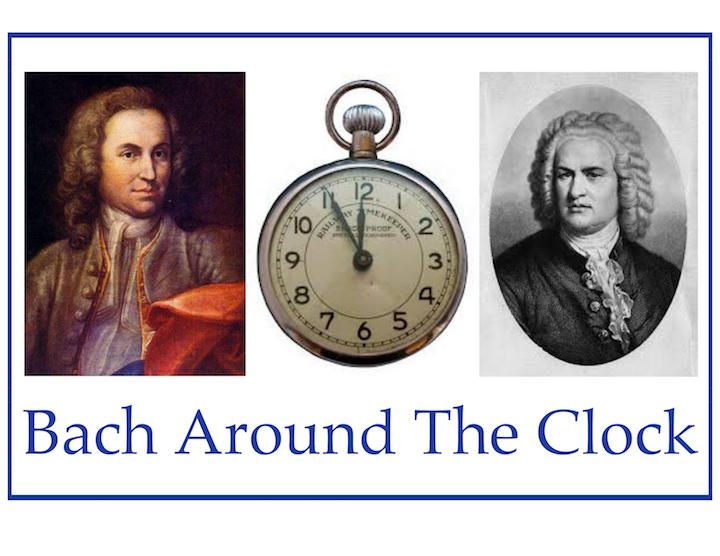
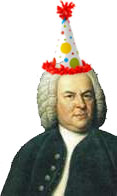
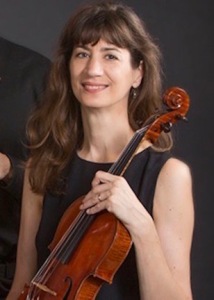
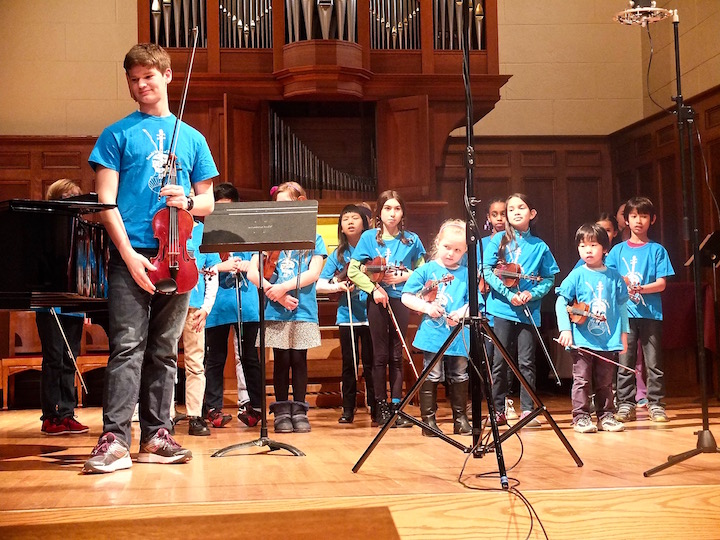
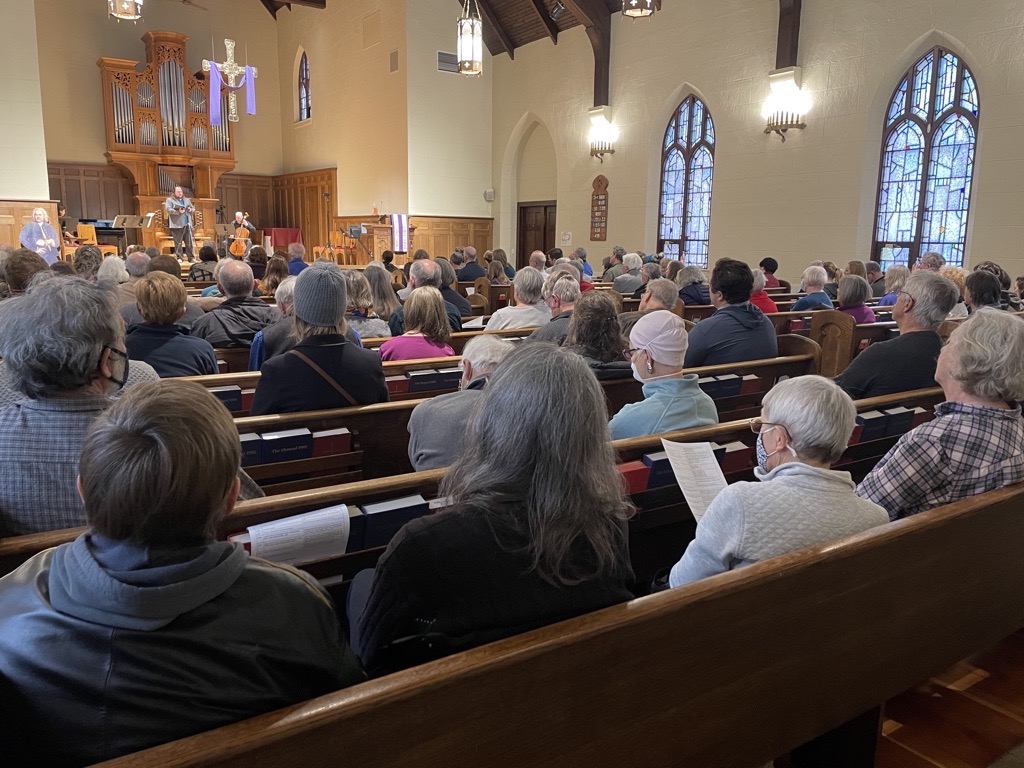
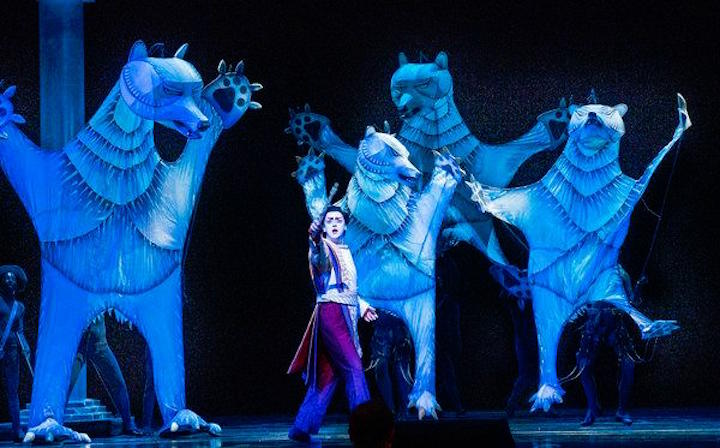






Classical music: Trio Celeste proves superb in its Madison debut concert at Farley’s House of Pianos
3 Comments
IF YOU LIKE A CERTAIN BLOG POST, PLEASE SPREAD THE WORD. FORWARD A LINK TO IT OR, SHARE or TAG IT (not just “Like” it) ON FACEBOOK. Performers can use the extra exposure to draw potential audience members to an event.
By Jacob Stockinger
\Here is a special posting, a review written by frequent guest critic and writer for this blog, John W. Barker. Barker (below) is an emeritus professor of Medieval history at the University of Wisconsin-Madison. He also is a well-known classical music critic who writes for Isthmus and the American Record Guide, and who hosts an early music show once a month on Sunday morning on WORT FM 89.9 FM. For years, he served on the Board of Advisors for the Madison Early Music Festival and frequently gives pre-concert lectures in Madison. He also took the performance photos.
By John W. Barker
In its Salon Piano Series, Farley’s House of Pianos has been offering splendid piano recitals. But it has augmented that by bringing other musicians to join in chamber music programs, showing them at work with the vintage pianos in the Farley collection, so lovingly restored.
On Sunday afternoon, the series brought the Trio Celeste (below) from California to play just such a program. Consisting of violinist Iryna Krechkovsky, cellist Ross Gasworth and pianist Kevin Kwan Loucks, the group played a demanding program of predominantly Russian origins.
They began by reversing the two parts of the program from the printed order. Thus, the first item was the single-movement Trio élégiaque No. 1 by Sergei Rachmaninoff, composed in 1892, inspired by the Tchaikovsky work that comprised the latter half. This was followed by piano trio arrangements from the flashy “Four Seasons of Buenos Aires” by the Argentinian composer Astor Piazzolla.
The red meat of the program, however, was the magnificent Trio in A minor, Op. 50, composed in 1882 by Tchaikovsky. This is one of the towering works of the chamber music literature, cast in quite unconventional terms: a tightly constructed but beautifully flowing opening movement, then an extended set of variations on a folksy tune.
The group (below) did resort to a frequent trick of cutting, omitting notably the challenging fugal variation. (You can hear the whole Theme and Variations movement in the YouTube video at the bottom.) But the performance was powerful and impassioned — and the more compelling for being given in a modest venue rather than in a large concert hall. These are truly superb musicians, and it is wonderful to have them come to Madison for us.
The program made use of Farley’s Steinway Model D instrument made in 1950. During the intermission, Tim Farley (below) spoke knowingly about the instrument and its restoration. And, at the outset of things, comments on the music were given by the pianist and the cellist.
A truly memorable event in the Farley series!
Share this:
Tags: #AmericanRecordGuide, #ArgentinianComposer, #AstorPiazzolla, #BlogPost, #BlogPosting, #BlogReview, #ChamberMusic, #EmeritusProfessor, #FacebookPost, #FacebookPosting, #Farley'sHouseofPianos, #FolkMusic, #FolkTune, #FourSeasonsofBuenosAires, #IsthmusNewspaper, #JohnW.Barker, #MadisonEarlyMusicFestival, #MedievalHistory, #MusicCritic, #MusicReview, #PeterIlyichTchaikovsky, #PianoTrio, #RussianMusic, #SalonPIanoSeries, #SergeiRachmaninoff, #SergeiRachmaninov, #SteinwayPiano, #ThemeAndVariations, #TimFarley, #TrioCéleste, #UniversityofWisconsin-Madison, #WORT-FM89.9, #YouTubevideo, American Record Guide, Argentinian, arrangement, Arts, audience, Ástor Piazzolla, blog, cellist, Cello, Chamber music, Classical music, classicalmusic, comments, composer, counterpoint, cut, debut, Early music, Facebook, Farley's House of Pianos, Folk music, folk tune, forward, Four Seasons of Buenos Aires, fugue, History, instrument, Isthmus, Jacob Stockinger, John W. Barker, like, link, literature, Madison, Madison Early Music Festival, Medieval, Medieval history, MEMF, movement, Music, music critic, music review, Musician, omit, origin, Passion, performance, performer, photo, Pianist, Piano, Piano Trio, post, posting, professor, program, Radio, recital, restoration, review, Russian, Russian music, Salon Piano Series, Sergei Rachmaninoff, Sergei Rachmaninov, share, Steinway, tag, Tchaikovsky, theme and variations, Tim Farley, Trio Céleste, United States, University of Wisconsin–Madison, vintage, Violin, violinist, Wisconsin, WORT-FM 89.9, Writer, YouTube